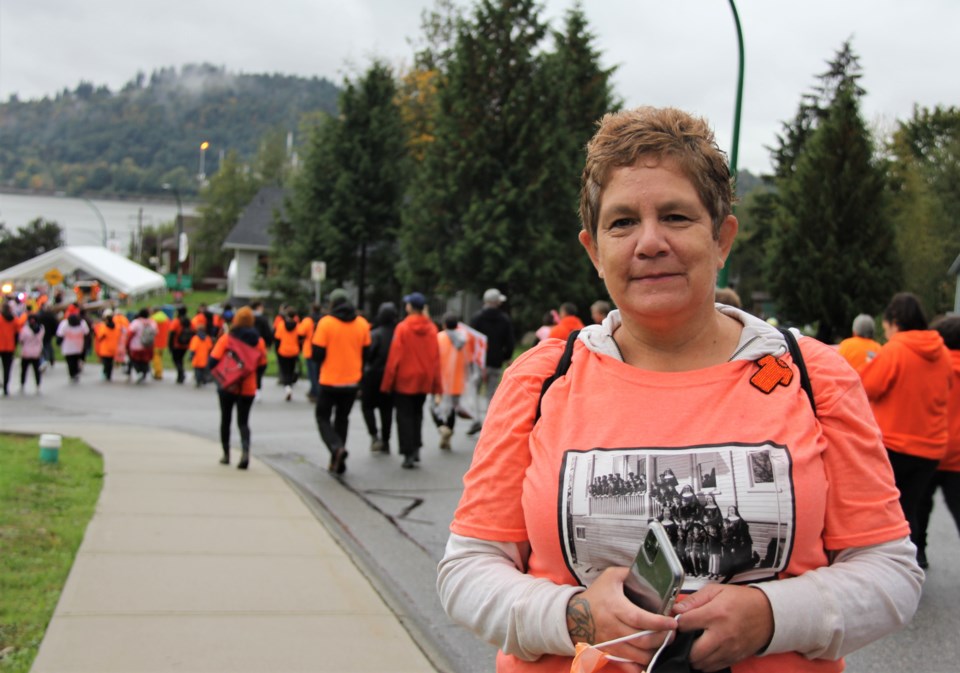Friday, Sept. 30, marks the second observance of a National Day for Truth and Reconciliation. As Chief of Tsleil-Waututh Nation, I have been reflecting on what reconciliation means and its importance to our community.
My hope is that as we share our truths as Tsleil-Waututh People, that we have these truths acknowledged, understood, and shared by others. It is only by finding a path to move forward together that we can grow.
Building relationships with our neighbours, local municipalities and all levels of governments is a priority of mine as well as our elected council. I encourage everyone to continue learning about the painful history of residential schools and to have open hearts and minds in order to feel and understand what our survivors and ancestors had to endure in their lives – many lives were cut much too short.
The trauma caused by residential schools is felt intergenerationally, and our Nation provides wraparound services to all members to ensure they receive holistic and culturally safe health and wellness care.
We may not see the full extent of reconciliation in our lifetimes, but we have started. And by starting this journey, we are making life simpler for our future generations. Focusing on our youth is another priority for our Nation. We are working tirelessly to restore and preserve our culture, language and traditions for the benefit of future generations.
To commemorate Sept. 30, our community, including our Nation members and our staff, are taking part in a pilgrimage to walk the 8.5-kilometre journey from the former site of St. Paul’s Indian Residential School back home to the Tsleil-Waututh reserve on Dollarton Highway.
This pilgrimage is meaningful to me because we will be retracing the steps that my dad and our relatives took every day to and from “school.” On this day, we will honour all residential and day school survivors and loved ones who passed, while creating space for healing for our Tsleil-Waututh Nation community.
As Tsleil-Waututh Nation, “People of the Inlet,” we are raised to be respectful to mother earth, living animals, and all people. We are not here to engage in conflict; we are here to work together for the betterment of all people.
Tsleil-Waututh Nation has experienced many recent achievements. Last fall, we came together with Metro Vancouver to announce a new name in hən̓q̓əmin̓əm̓ language, təmtəmíxwtən, for Belcarra Regional Park to reflect the park’s history as the largest of our ancestral villages.
Another highlight was the signing of a collaboration agreement for the world’s first Indigenous-led Olympic bid. Alongside host nations Lil’wat Nation (Lil̓wat7úl), Musqueam Nation (xʷməθkʷəy̓əm), and Squamish Nation (Sḵwx̱wú7mesh), we were proud to have taken this step forward to explore the potential of bringing the Olympic and Paralympic Games back to the region in 2030.
In June of this year, the Indian River Watershed Integrated Stewardship Plan was released, a collaborative development by Tsleil-Waututh and the province of B.C. For more than a decade, we have reintroduced Roosevelt elk, transplanted cə ́ləm (eelgrass) on the shores of Whey-ah-wichen (Cates Park), and helped salmon stocks rebound in our traditional territory.
Through this work, we are asserting our Indigenous rights and title, building capacity within our community, and participating in decision-making within our lands. By doing so, we are placing the face of the Tsleil-Waututh Nation back on our traditional territory.
We are a strong nation, and with the support of our non-Indigenous community members and our neighbours on the North Shore, we will continue to thrive and to uplift the work of truth and reconciliation. By doing so, we are honouring our Elders and making them proud.
Jen Thomas is the elected Chief of Tsleil-Waututh Nation.
The National Residential Schools Crisis Line is available 24/7 for anyone experiencing pain or distress as a result of residential school experiences: 1-866-925-4419.




